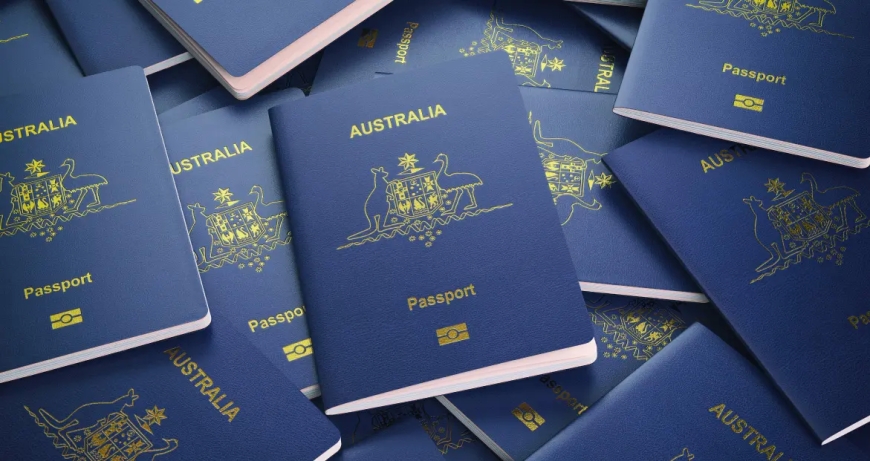Understanding Visa Revocation Rules and Your Appeal Rights
Learn about visa revocation rules, appeal processes, and how the best migration consultants can help secure your Australian visa status.

Having your visa revoked can be a stressful and overwhelming experience. Whether you’re in Australia for work, study, or family reasons, a sudden revocation can disrupt your plans and leave you feeling uncertain about what to do next. However, the story doesn’t have to end there. You have the right to challenge the decision by filing a visa revocation appeal, and with the right help, you can turn things around.
In this blog, we’ll break down what visa revocation means, explain the rules and your rights, and why working with the best migration consultant can make a difference in navigating this challenging process.
What Does Visa Revocation Mean?
Visa revocation occurs when the Australian authorities cancel a visa that was previously granted. Once revoked, your stay becomes unlawful unless you successfully appeal or secure a new visa.
Why Might a Visa Be Revoked?
Understanding the reasons behind the revocation is the first step to resolving the issue. Here are some common reasons:
- Violation of Visa Conditions
This could mean working more hours than permitted, failing to attend required classes as a student, or overstaying. - False or Misleading Information
If authorities find inconsistencies in your visa application, it could result in cancellation. - Character Concerns
Criminal behavior or other activities deemed harmful to the community can lead to revocation. - Changes in Personal Circumstances
A change in your employment, sponsorship, or relationship status can affect your eligibility for the visa you hold.
Knowing why your visa was revoked will help you build a stronger case for your appeal.
What Are Your Rights After a Visa Revocation?
If your visa is revoked, you’re not left without options. Here’s what you can do:
- Get Notified
The authorities must inform you about the revocation decision, including the reason and the section of law applied. - File an Appeal
In many cases, you have the right to challenge the decision through a visa revocation appeal. - Seek Professional Help
This is crucial. Understanding legal procedures can be complex, and professional guidance ensures you follow the correct steps.
The Process of a Visa Revocation Appeal
Appealing a visa revocation can seem daunting, but breaking it into steps can simplify the process:
Step 1: Understand the Reason for Revocation
Carefully review the notice of revocation. This document explains the grounds for the decision, which you’ll need to address in your appeal.
Step 2: File Your Appeal
In Australia, appeals are handled by the Administrative Appeals Tribunal (AAT). You’ll need to submit your appeal within a specific timeframe, typically outlined in your revocation notice.
Step 3: Gather Supporting Evidence
Strengthen your appeal with evidence. This might include proof of compliance with visa conditions, documents addressing any character issues, or testimonials from employers or sponsors.
Step 4: Attend a Hearing
The AAT may invite you to present your case during a hearing. This is your opportunity to explain your situation and provide evidence.
Step 5: Await the Decision
After the hearing, the AAT will review your case and decide whether to overturn or uphold the revocation.
Why Seek Help from the Best Migration Consultant?
Filing a visa revocation appeal involves legal complexities, tight deadlines, and the need for strong evidence. Handling this process on your own can be overwhelming, which is why hiring the best migration consultant can make all the difference.
How a Migration Consultant Can Help:
- Expert Knowledge
Migration consultants understand the intricacies of Australian immigration law and appeal processes. - Tailored Advice
Every visa case is unique. A consultant will analyze your situation and develop a strategy specific to your needs. - Error-Free Documentation
Preparing and submitting the right documents is critical, and a professional ensures nothing is overlooked. - Representation
A consultant can represent you during hearings, presenting your case in the best possible way. - Peace of Mind
Knowing a professional is handling your appeal allows you to focus on other aspects of your life.
Choosing the Right Migration Consultant
Not all consultants are the same, so how do you pick the best one?
- Verify Credentials
Ensure your consultant is registered with the Migration Agents Registration Authority (MARA). - Look for Experience in Appeals
Choose someone with a proven track record of handling visa revocation cases. - Read Reviews
Check testimonials from previous clients to gauge their expertise and success rate. - Ensure Clear Communication
Your consultant should explain the process clearly and keep you updated throughout. - Ask About Fees
Make sure there are no hidden costs. A transparent fee structure is a sign of a trustworthy consultant.
Mistakes to Avoid When Appealing a Visa Revocation
1. Ignoring Deadlines
Appeals have strict deadlines. Missing these can result in losing your right to appeal.
2. Going It Alone
The process is complicated, and mistakes can cost you your visa. Don’t hesitate to seek help from professionals.
3. Providing Weak Evidence
Your appeal is only as strong as the evidence you submit. Gather solid documentation to support your case.
4. Not Fully Understanding the Rules
Misinterpreting immigration laws or the reason for revocation can weaken your appeal.
What If Your Appeal Is Denied?
If the AAT rejects your appeal, you may still have options:
- Judicial Review
If you believe there was a legal error in the revocation decision, you can seek a judicial review. - Apply for Another Visa
Depending on your circumstances, you may qualify for a different visa category. - Voluntary Departure
If no other options exist, leaving voluntarily can help preserve your chances of applying for a visa in the future.
Final Thoughts
A visa revocation can feel like the end of the road, but it doesn’t have to be. By understanding the visa revocation appeal process and working with the best migration consultant, you can turn the situation around and protect your future in Australia.
The key is to act quickly, stay informed, and seek professional guidance. With the right support, you’ll be in a strong position to challenge the decision and continue pursuing your goals in Australia.
If you’re facing a visa revocation or need help with an appeal, don’t wait. Reach out to a registered migration agent Australia today—they’re here to help you navigate the process and secure your future.
What's Your Reaction?
























